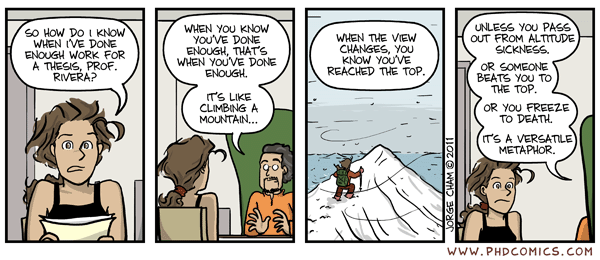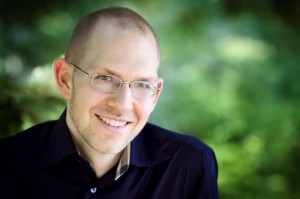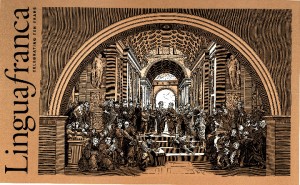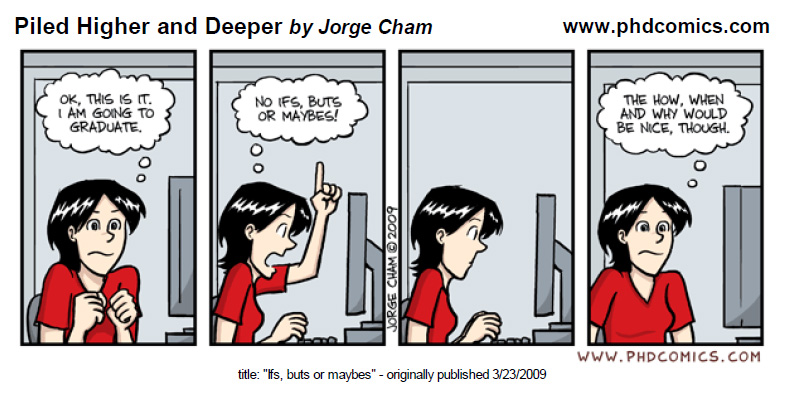Julie Vick
The first thing I wrote for the Career Services blog was “’Makes ‘Em Laugh:’ A Comic a Day Gets the Dissertation Written.”
In that little piece my goal was to help current doctoral students take a break from their research and writing to laugh at Piled Higher and Deeper, a comic strip that documents the humorous, and not-so-humorous, aspects of grad school.
Now, more than two years later, Jorge Cham, the author who started writing the strip while working on his PhD at Stanford, has to his credit four published books, a movie (which was shown at Penn this past fall) entitled “The Power of Procrastination” and an online store full of T-shirts and mugs with such PhD-pithy sayings as “Grad School: It seemed better than getting a real job” and “The Origin of the Theses”.
Undergrads who are considering graduate education: Piled Higher and Deeper can help you get an interesting read on your possible future. For first-time readers, there’s a page to check where you can learn about the characters and link to the most popular strips.
As I said last time, not only are the comics themselves great to read but so is the fan mail:
“Oh God, it hurts! It’s all so true, and so evil! I can’t tell whether I should be laughing or crying in sympathy” -Chemistry grad from Caltech
“Your comic strip rocks! I’ve decided not to go to grad school.” -Electrical Engineering undergrad from Yale U.
“Everybody in my lab loves your work. The songs help soothe the hurt when my experiments fail and I think about the next 6 yrs here” -Microbiology grad from NYU
You can join a mailing list to be notified of new strips. So once again, I advise, “Give yourself the gift of laughter and spend a little time with PHD!”









